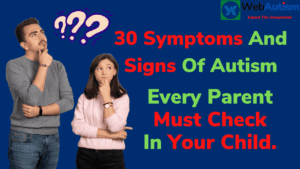Attention Deficit Hyperactivity Disorder (ADHD) is a neurodevelopmental disorder that affects individuals of all ages, making it challenging for them to focus, control impulses, and regulate energy levels. While it is important to recognize the distinct nature of ADHD, it is equally crucial to consider the potential overlap with conditions such as Autism Spectrum Disorder (ASD). In this blog, we’ll explore the intricacies of ADHD diagnosis and shed light on the importance of finding the best Autism Treatment Center for comprehensive care.
Understanding ADHD Diagnosis:
ADHD diagnosis involves a thorough evaluation by qualified healthcare professionals, including psychiatrists, psychologists, and pediatricians. Key factors considered in the diagnostic process include:

- Symptom Assessment: ADHD symptoms are categorized into two main types: inattention and hyperactivity-impulsivity. Individuals with ADHD may exhibit a combination of these symptoms, varying in intensity and persistence.
- Medical History: A detailed medical history helps rule out other potential causes for symptoms and provides a holistic view of the individual’s health.
- Observations from Different Settings: Behavioral observations in various settings, such as home and school, contribute valuable information for an accurate diagnosis.
- Rule Out Coexisting Conditions: Given the potential overlap with other conditions, it is essential to rule out comorbidities, including Autism Spectrum Disorder.
Understanding ADHD diagnosis involves a meticulous examination of an individual’s behavioral patterns, cognitive functioning, and developmental history by qualified healthcare professionals.
The diagnostic process encompasses a comprehensive assessment of ADHD symptoms, which include inattention, hyperactivity, and impulsivity. These symptoms may manifest differently in various settings, emphasizing the importance of behavioral observations in diverse environments.
Medical history is thoroughly explored to rule out other potential causes for the observed symptoms, ensuring an accurate diagnosis. In cases where there is a potential overlap with conditions like Autism Spectrum Disorder (ASD), clinicians employ a careful and nuanced approach to differentiate between the two, recognizing the unique characteristics of each neurodevelopmental disorder.
The diagnostic journey seeks to provide a holistic understanding of the individual’s cognitive and emotional landscape, laying the foundation for personalized treatment plans that address the specific needs of those navigating the complexities of ADHD.

ADHD and Autism Spectrum Disorder Overlap:
ADHD often coexists with other neurodevelopmental disorders, such as Autism Spectrum Disorder. Some common features shared between ADHD and ASD include difficulties in social interaction, communication challenges, and repetitive behaviors. However, each condition has its unique characteristics, necessitating careful differentiation during the diagnostic process.
The overlap between Attention Deficit Hyperactivity Disorder (ADHD) and Autism Spectrum Disorder (ASD) introduces a layer of complexity in the diagnostic landscape. While both conditions share certain features, such as challenges in social interactions and communication, it is essential to discern their distinctive characteristics for accurate identification.
Also Read:- What Is Mental Retardation: Causes, Symptoms, Treatment and Support
Individuals with ADHD may exhibit symptoms of impulsivity, hyperactivity, and inattention, while ASD often involves repetitive behaviors, restricted interests, and difficulties in understanding social cues. Recognizing the coexistence of these conditions is critical, as it influences the development of tailored interventions and treatment plans.
The interdisciplinary nature of diagnosis ensures that healthcare professionals consider a range of factors, from behavioral observations in different settings to detailed medical histories, allowing for a nuanced understanding of the individual’s neurodevelopmental profile. Acknowledging the ADHD and ASD overlap underscores the importance of comprehensive assessments and individualized strategies to address the unique needs of each person on their journey towards improved cognitive and social functioning.
Also Read:- Autism Meaning In Various Languages
Why Seek Treatment at an Autism Treatment Center?
Individuals diagnosed with ADHD, especially those with comorbidities like Autism Spectrum Disorder, benefit from specialized care provided by Autism Treatment Centers. These centers offer a multidisciplinary approach, including:

- Comprehensive Assessments: Autism Treatment Centers conduct thorough assessments to identify the unique needs of each individual, ensuring a tailored treatment plan.
- Specialized Therapies: Evidence-based therapies, such as Applied Behavior Analysis (ABA) and social skills training, are commonly employed to address specific challenges associated with ADHD and Autism Spectrum Disorder.
- Experienced Professionals: These centers are staffed with experienced professionals, including psychologists, behavioral therapists, speech and language therapists, and occupational therapists, working collaboratively to provide comprehensive care.
- Parental Involvement and Education: Autism Treatment Centers prioritize involving parents in the treatment process, providing education and support to enhance the effectiveness of interventions at home.
Seeking treatment at an Autism Treatment Center proves instrumental for individuals diagnosed with Attention Deficit Hyperactivity Disorder (ADHD), particularly those with comorbidities like Autism Spectrum Disorder (ASD).
These specialized centers offer a holistic and multidisciplinary approach to address the complex needs associated with neurodevelopmental disorders. Comprehensive assessments conducted by experienced professionals enable the identification of individualized treatment plans tailored to the specific challenges posed by ADHD and ASD.
Autism Treatment Centers commonly employ evidence-based therapies such as Applied Behavior Analysis (ABA) and social skills training, designed to enhance cognitive, behavioral, and social functioning. The inclusion of behavioral therapists, speech and language therapists, and occupational therapists in the treatment team ensures a collaborative effort aimed at maximizing positive outcomes.
Moreover, these centers prioritize parental involvement and education, recognizing the pivotal role caregivers play in reinforcing therapeutic strategies and fostering a supportive environment for individuals navigating the intricacies of ADHD and Autism Spectrum Disorder.
Conclusion:
Finding the best Autism Treatment Center is crucial for individuals with ADHD, especially those with comorbidities like Autism Spectrum Disorder. By understanding the intricacies of ADHD diagnosis and seeking specialized care, individuals can embark on a journey toward improved focus, enhanced social skills, and a better quality of life. The collaboration between healthcare professionals, evidence-based therapies, and parental involvement plays a pivotal role in achieving positive outcomes for individuals navigating the challenges of ADHD and Autism Spectrum Disorder.





